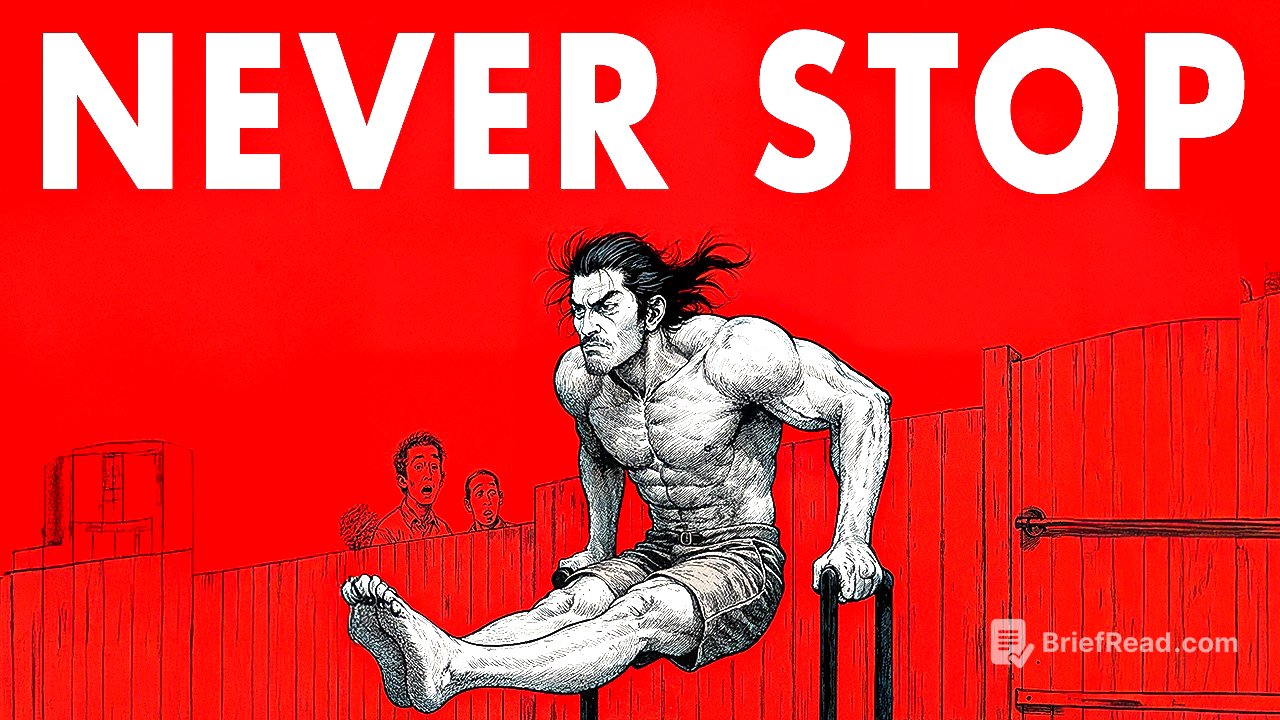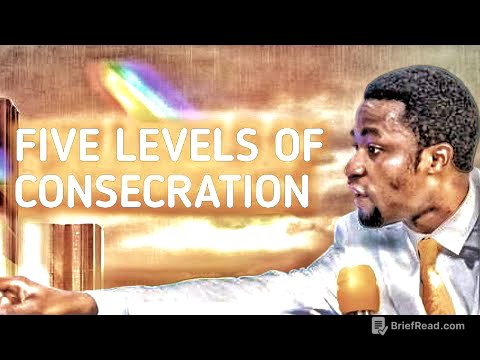TLDR;
This video explains how to achieve unwavering consistency in any practice by understanding how the brain works and implementing five concrete steps based on Dogen's principle of "guoji" (practice without gaps). It argues that motivation is unreliable and introduces strategies to eliminate internal negotiation, establish fixed schedules, adhere to one form of practice, avoid gaps, and pre-solve responses to unexpected obstacles. The ultimate goal is to transform consistency from a daily battle into an automatic, unbreakable habit.
- Overcoming reliance on motivation by creating irreversible commitments.
- Establishing fixed schedules to eliminate decision fatigue.
- Sticking to one form of practice to avoid micro-decisions that lead to inconsistency.
- Maintaining continuity by avoiding gaps and adapting instead of quitting.
- Preparing for unexpected obstacles by pre-solving responses.
The Written Declaration [0:24]
The initial step to achieving consistency involves creating a written declaration to bypass the internal negotiation that occurs when facing a commitment. This declaration should be an irreversible commitment, similar to the Samurai's keen vows written in blood, to move it from the realm of negotiation to the realm of action. Publicly declaring a commitment adds "skin in the game" by risking one's reputation, leveraging the primal fear of public shame to fuel adherence. Ichigo's experience with meditation highlights how a public declaration of identity, inspired by Zen monks' Jukai vows, shifted his mindset and ended the internal debate, turning social pressure into a motivator.
Fixed Schedule [3:50]
Establishing a fixed schedule is crucial for eliminating the mental energy wasted on deciding when to practice. Drawing from Dogen's Ihi Shingi, which dictates the precise timing of monastic activities, the video emphasizes that consistent timing transforms a conscious decision into an automatic pattern. Ichigo's choice of 5:00 a.m. for meditation exemplifies this, as it eliminates distractions and excuses. While the initial period may be challenging, the body eventually adapts, and the fixed time becomes non-negotiable, removing time as a variable in the practice.
One Form Practice [6:26]
The video advocates for sticking to one specific form of practice to eliminate micro-decisions that can undermine consistency. Drawing from Dogen's teachings, it explains that repetition shapes the mind and leads to unconscious competence. Ichigo's commitment to a fixed routine of push-ups, meditation, and reading demonstrates how eliminating variety can lead to a surrender of resistance and the automation of practice. This approach mirrors the mastery seen in various fields, where experts return to and repeat the basics until they become effortless.
No Gap Practice [9:07]
The "all or nothing" mentality is identified as a major obstacle to consistency. The video stresses the importance of maintaining continuity, even when conditions are not perfect, to prevent old patterns from returning. Strategic rest is distinguished from retreat, emphasizing that any movement toward the goal is progress. Ichigo's experience during a travel day illustrates how adapting the practice to maintain momentum is crucial for sustaining consistency and achieving the declared goal.
Pre-Solve Responses [11:38]
The final step involves pre-solving responses to unexpected obstacles to avoid decision fatigue during moments of stress. Drawing from the example of Zen monasteries that continue practice despite disruptions, the video advises creating predetermined responses to common obstacles. Ichigo's rain plan, guest plan, and hangover plan exemplify this approach, ensuring that the practice continues regardless of external circumstances. This proactive strategy transforms consistency from a daily battle into a fact of existence, leading to profound personal transformation.







![[제40회 골든디스크] 아티스트 대상 - JENNIE (제니)](https://wm-img.halpindev.com/p-briefread_c-10_b-10/urlb/aHR0cDovL2ltZy55b3V0dWJlLmNvbS92aS9neTl5VlVQaF9GVS9ocWRlZmF1bHQuanBn.jpg)

